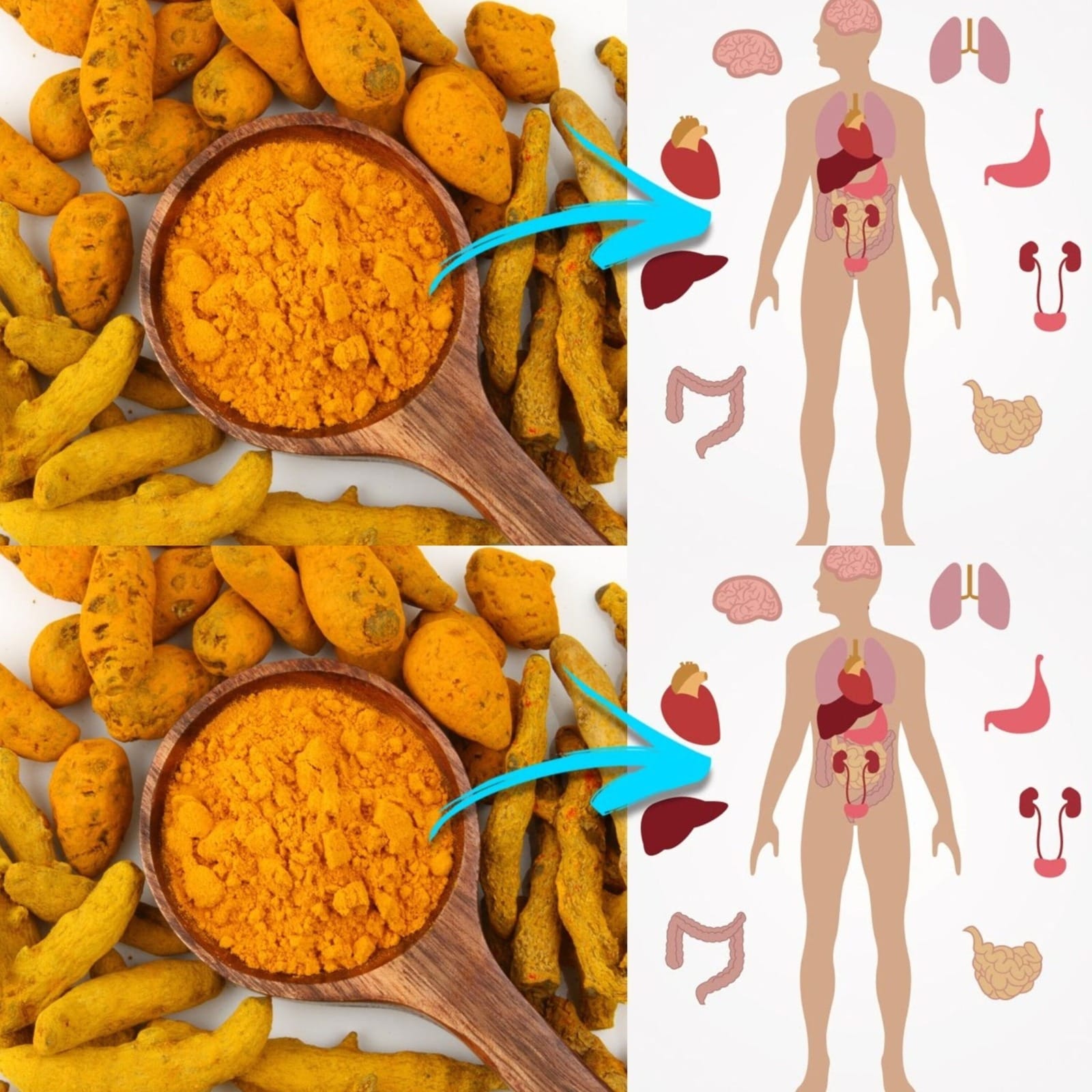Curcumin has been shown to increase levels of Brain-Derived Neurotrophic Factor (BDNF), a growth hormone in the brain. This may delay or even reverse brain diseases and age-related decreases in brain function. It can potentially improve memory and increase cognitive abilities.
5. Improves Heart Health
Turmeric helps improve the function of the endothelium, which is the lining of the blood vessels. Endothelial dysfunction is a major contributor to heart disease. Curcumin’s anti-inflammatory and antioxidant effects may lower the risk of heart disease by improving blood vessel function and reducing inflammation.
6. May Help Prevent and Treat Cancer
Curcumin has been studied for its role in cancer treatment and prevention. It may affect cancer growth, development, and spread at the molecular level by reducing angiogenesis (growth of new blood vessels in tumors) and metastasis. It also contributes to the death of cancerous cells in laboratory studies.
7. Aids in Digestion
Turmeric has been used in traditional medicine for digestive issues. It stimulates bile production in the liver, which is necessary for digesting fats. This can help with conditions like indigestion and bloating. Curcumin is also being studied for its potential role in treating Irritable Bowel Syndrome (IBS) and ulcerative colitis.
8. Helps Manage Diabetes
Turmeric may help regulate blood sugar levels and improve insulin sensitivity, reducing the risk of developing type 2 diabetes. Some studies suggest that curcumin supplementation can delay the onset of diabetes in prediabetic individuals by improving metabolic function and reducing inflammation.
9. Enhances Skin Health
Due to its anti-inflammatory, antimicrobial, and antioxidant properties, turmeric can be beneficial for the skin. It helps reduce acne, blemishes, and scarring. It is also effective in treating skin conditions like eczema and psoriasis when applied topically or consumed orally.
10. Supports Weight Loss
Curcumin may promote weight loss by reducing inflammation and improving metabolic function. It has been shown to influence the activity of fat cells and may help reduce the accumulation of body fat. Additionally, turmeric may suppress fat tissue growth and help manage weight when combined with a balanced diet and exercise.
How to Incorporate Turmeric:
- Turmeric tea: A soothing drink with added ginger and honey.
- Golden milk: A traditional turmeric drink made with milk, cinnamon, and a pinch of black pepper to enhance curcumin absorption.
- Supplements: Curcumin supplements with added piperine (black pepper) for better bioavailability.
Conclusion:
Turmeric offers a wide range of health benefits, from reducing inflammation and boosting brain function to supporting heart health and digestion. However, it’s important to remember that turmeric supplements should be taken with care, as high doses may interact with medications or cause side effects. Always consult with a healthcare provider before starting any new supplement regimen.
